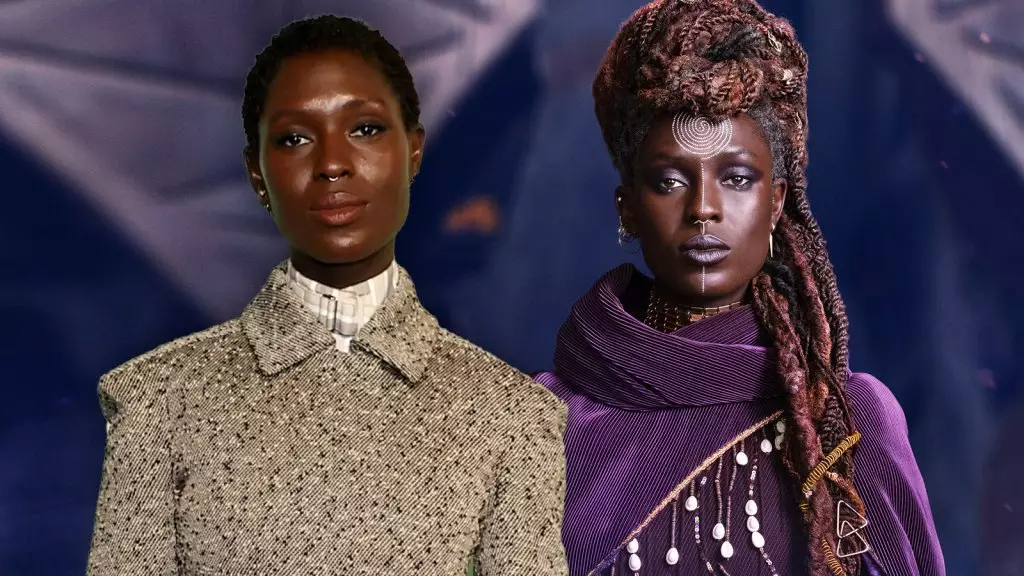Cyberbullying has emerged as a significant issue in today’s digital age, particularly within the entertainment industry, where public figures are often subject to intense scrutiny and scrutiny. Recently, actress Jodie Turner-Smith brought this pressing matter to light when she criticized Disney for its inadequate support of her co-star Amandla Stenberg, who faced a barrage of online hate. Turner-Smith’s comments shine a spotlight not only on the culture of toxicity prevalent on social media but also on the responsibilities of major corporations in addressing harassment and fostering an inclusive environment.
Turner-Smith, known for her role as Mother Aniseya in the Disney+ series *The Acolyte*, expressed disappointment in the company’s lack of a robust response to the discrimination and racism directed at Stenberg. Her criticism reflects a growing sentiment among viewers and industry peers that organizations must take a stand against hate, especially when it targets their own talent. In a world where digital platforms amplify voices, both positive and toxic, the role of powerful entities like Disney becomes crucial in shaping public discourse.
Corporate Responsibility and the Need for Advocacy
In her interview with *Glamour UK*, Turner-Smith articulated a rallying cry: “They’ve got to stop doing this thing where they don’t say anything when people are getting f***ing dog-piled on the internet with racism and bullsh**.” Her call to action challenges not just Disney but the entire entertainment industry to adopt a more proactive stance against racism and discrimination. By remaining silent, companies risk tacitly endorsing the very behaviors they ought to condemn, creating an environment where bullying can proliferate unchecked.
Turner-Smith’s advocacy is supported by an acknowledgment of the financial implications of standing up for inclusion. She pointed out that marginalized groups contribute significantly to the consumer base, suggesting that a failure to address issues of racism could ultimately hurt the bottom line. Her pointed remarks serve as a reminder that corporate social responsibility is not just an ethical obligation; it can also be strategically beneficial.
Amandla Stenberg’s experience serves as a poignant illustration of the harsh reality many young actors face in the spotlight. In her public statements, she has recounted the “rampage of vitriol” she encountered even before the series was released. This highlights how actors of color are often subjected to hate based on preconceived notions rather than any legitimate critique of their work. The emotional toll of such attacks can be devastating, leading to feelings of isolation and frustration.
Stenberg’s response to the bullying, including her artistic expression through music, denotes a powerful form of resilience. Her song addresses the appropriation and misuse of the term “woke,” highlighting how it has become weaponized against those who stand for social justice. By using her platform to speak out, Stenberg not only asserts her identity but also encourages others to confront racism and bigotry.
As the industry grapples with these challenges, Turner-Smith and Stenberg’s experiences underscore the necessity of open dialogue about bullying and racism. The expectation is clear: the responsibility lies not just with the individuals who suffer from hate but also with the institutions that facilitate their stardom. Companies like Disney hold significant power and influence, and their actions—or lack thereof—speak volumes about their values and commitment to equality.
It’s essential for corporations to move beyond merely crafting diversity statements and instead bolster efforts with tangible actions. This includes publicly opposing hate speech, providing support systems for affected artists, and fostering a culture that actively promotes inclusion. Change is a collective responsibility, calling on industry stakeholders to create an environment where creativity flourishes free of the shadows of hate.
The call from Turner-Smith and the experience of Stenberg serve as a critical reminder that the fight against cyberbullying and racism is far from over. Through advocacy and support, there is hope for transforming the dialogue around these issues, paving the way for a more equitable and compassionate industry. If entities like Disney take a stand, they could not only protect their artists but also set a precedent for the greater entertainment landscape. Only by isolating hate can the industry truly flourish in its diversity and artistry.
